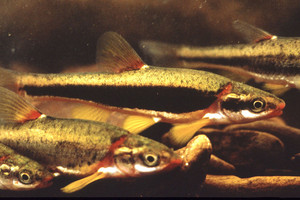Fracking Chemicals Contain Known Carcinogens (INFOGRAPHIC)
Johannesburg, South Africa – The Cancer Association of South Africa (CANSA) announced a campaign to promote the professional analyses of drinking water in farms in the Karoo due to the risk of water and environmental contamination with carcinogens due to the fracking process.
South Africa stands on the brink of hydraulic fracturing (‘fracking’) in the Karoo – a mining process designed to release vast amounts of natural gas from shale deposits kilometres underground. Large quantities of water – as much as between 20 and 30 million litres – are pumped under high pressure into boreholes to release the gas.
Potential harm
Dr Carl Albrecht, CANSA’s Head of Research explains, “Unfortunately potentially hazardous substances are often added to the fracking fluid or are released through the process. Some of these are carcinogens such as benzene, that can cause leukaemia, and formaldehyde which have both been classified as a Group 1 carcinogen in humans by the International Agency for Research on Cancer (IARC), the World Health Organization’s specialized cancer agency.”
“Because of the high pressure and depth of operation, it’s not surprising that spills of fracking fluid on the way down or up, have been recorded. Also – the contaminated water needs to be disposed of, and there is no clarity on how this will happen in the Karoo. “The fracking fluid that will be disposed of could be laced with up to 750 chemicals, of which about 150 are known carcinogens and/or endocrine disrupting chemicals suspected to be involved in various cancers,” he added.
Reducing the cancer risk
There have reportedly been over 1 000 documented cases in the US of drinking water contamination next to areas of gas drilling as well as cases of sensory, respiratory, and neurological damage due to ingested contaminated water.
Albrecht states, “We tested samples of Karoo water to obtain a baseline as a proof of concept before fracking took place so that if pollution does occur during or after fracking, the data could be used as evidence in court and be a deterrent against pollution. Without such data, a contaminated farm or an affected community would not have a leg to stand on in court because to prove pollution in court one needs ‘Before’ and ‘After’ data of the drinking water aquifers.”
Results to date
The first formal baseline, aquifer sample of drinking water was taken from a borehole 14 km from Cradock on 4 March 2014 and analysed during 2014. Water was analysed for conductivity, pH, elemental composition, organic molecules and pesticides. Results to date have shown that aquifer drinking water from a borehole in the Karoo can be harvested professionally and analysed for inorganic and organic molecules which were present in low concentrations except for uranium, and strontium which were much higher in the borehole water than for example in Bellville tap water. This specific fingerprinting of the chemical composition of the borehole water for the farm involved is posted on www.cansa.org.za/fracking.
Going forward
CANSA, teaming up with TKAG have formulated 16 recommendations concerning chemical and other analyses of borehole baseline water to ensure transparency. Fracking companies must take responsibility for legal and commercial aspects of water analysis data including payment for all tests. Most important the companies must release all analytical data gathered before, during and after fracking to the Department of Water Affairs as well as an independent non-profit organisation such as CANSA who will place this information on the CANSA website for all, including the farmer/house-owner, to scrutinise and use for litigation if necessary. The fracking companies should also be instructed through legislation to release detailed information of all chemicals added to fracking fluid before authorisation of fracking activities and make this information transparent through posting on the websites of the Department of Water Affairs and CANSA.
TKAG CEO, Jonathan Deal, presented on the failure of South African legislation and the current draft regulations to establish a sound system and methodology for baseline monitoring. “Despite the fact that the MPRDA Amendment Bill and the fracking regulations have not yet been finalised and implemented, the government has authorised the processing of applications to explore for shale gas. Baseline monitoring of water, air and other prevailing conditions is one of several issues that have not been dealt with sufficiently in the regulations. This is the only chance South Africa will have to complete a scientifically sound database of groundwater and air quality in drilling areas before any drilling or fracking starts. We cannot afford to get it wrong.”
Albrecht concluded, “It’s hoped that this initiative will induce fracking companies like Shell, Falcon and Bundu to conduct their operations with the greatest of care and protect the Karoo, plants, animals and humans from any carcinogenic harm through any form of contamination of underground, drinking water aquifers. CANSA, as part of its watchdog role to reduce the cancer risk in South Africa, will monitor this situation carefully. We regularly conduct research that focusses on reducing the cancer risk and gaining more insight into carcinogens in the environment, including lifestyle choices, which are believed to lead to 90% of all cancers.”





